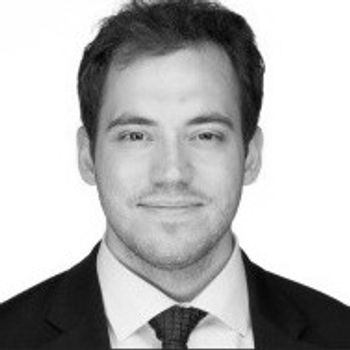Words popular on campuses like ‘Woke,’ ‘Safe space’ see very little use among Americans, survey finds
Very few Americans regularly use terms like ‘Latinx,’ ‘intersectionality,’ and ‘antiracism,’ despite these words’ relative popularity on campuses.
The words at the bottom of the list included ‘BIPOC’ and ‘Misogynoir.’
A YouGov poll has found that words common among the left such as “Woke,” “Systemic racism,” and “Mansplaining” find very little use comparatively among the broader American population.
The survey, released on Tuesday, involved 1,164 “U.S. adult citizens.” The most used word, “safe space,” was only “regularly used” by 20 percent of the survey respondents. The second most used word, “Woke,” is regularly used by 19 percent.
The least used words, “Heteronormativity,” “BIPOC,” and “Misogynoir” were only regularly used by 4 percent of respondents.
Under 13 percent of respondents regularly use terms like “Antiracism,” “Cultural appropriation,” “Toxic masculinity,” “Mansplaining,” “Systemic racism,” and “reproductive justice.” Words that fall under 6 percent include “critical race theory,” “Latinx,” and “intersectionality.”
YouGov also revealed that Democrats are more likely to use such “social-justice-oriented language” than Republicans are.
The above terms see common usage among America’s colleges and universities.
Several schools, for example, have “Latinx” programs and classes, such as the University of California, Los Angeles, which has plans to start a “Latinx Success Center.” The prevalence of the term “Latinx” is widespread in higher education, even though the vast majority of Latinos dislike the term or feel indifferent to it.
The word and ideology of “woke” are also more likely to be used on campus than outside. Binghamton University in New York, for example, recently hosted a Diversity, Equity, and Inclusion event that included a “Woke Coach,” Seena Hodges, who identifies as a “fierce antiracist” and an “intersectional feminist.” Hodges’s company, also called “The Woke Coach,” openly promotes “woke” principles, and defines “woke” as “paying attention to social and societal injustices and . . . mov[ing] to action around those injustices.”
[RELATED: USF courses will stop brainwashing students that U.S. is ‘racist, sexist’]
The term “antiracism,” which has been promoted by controversial activists such as Ibram X. Kendi, is also widespread in higher education.
California State University gave scholarships on the basis of “antiracism work,” the University of Washington Medicine holds a “White Anti-Racism Group” to “support each other in becoming more antiracist without having to burden non-white colleagues for this support,” and Ohio State University College of Medicine students were made to read “antiracism” works.
The concept of “intersectionality,” which Merriam-Webster defines as “the complex, cumulative way in which the effects of multiple forms of discrimination (such as racism, sexism, and classism) combine, overlap, or intersect especially in the experiences of marginalized individuals or groups,” also finds strong purchase in campuses.
The University of Maryland will start a new course about “Fatness, Blackness and Their Intersections,” and California State University at Monterey Bay planned a “Werk Witch Drag Show,” an “intersectional drag show that encourages drag queens, kings, and non-binary performers to let their brilliance and diva shine bright like a diamond.”

